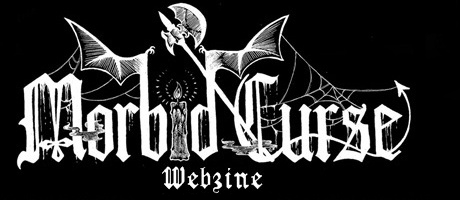
|

|
On Necro Production
by Noctir (Mar. 2011)

Necro production is a lo-fi style of recording that dates back to
the underground releases of the 1980s, particularly from the first wave of black metal. The classic albums and demos from
Venom, Bathory, Hellhammer and others were done in a very primitive and raw manner, mainly because this was the best that
they could manage to do at the time. In most cases, it had nothing to do with wanting to sound so unpolished, but just as
a result of the financial circumstances. Whether or not it was intended, this added a lot to the overall character of these
releases.
In the early 1990s, when the second wave of black metal was exploding, many bands were opting for an old
school sound and this was not limited to just the style of playing. Bands like Darkthrone and Emperor embraced the lo-fi style
of production, on purpose, partially as a way to distance themselves from the slick, overproduced death metal albums of that
time period, as well as paying homage to the First Wave bands. Bands recorded their material on low budgets and utilized four-track
recorders and whatever equipment that they could come across. In the case of Darkthrone, they had a clean, well-produced sound
on their debut album, when they were still playing death metal. However, each subsequent release saw them going for a more
raw and necro sound, culminating with 1994's Transilvanian Hunger. This album remains
the epitome of the style, though others have managed to sound "worse", only Darkthrone were able to achieve this sound and
to utilize it properly, without going too far and rendering the music ineffective. Burzum is another well-known example, as
Varg Vikernes used cheap and inadequate equipment for the recording of Filosofem,
which resulted in extremely fuzzy guitars and distorted vocals. While these bands used such techniques to great effect, others
have misinterpreted the meaning behind this and created somewhat of a problem.
While the musicians in Darkthrone and
Burzum were quite skilled and knew what they were doing and how to achieve the desired results, those who followed showed
a total lack of understanding and simply tried to copy the necro sound for the wrong reasons. In some cases, bands simply
felt that this was the only way to do things and worked under the incorrect assumption that all of their albums had to have
a demo-quality production job, or else it was "overproduced" and they would be deemed sellouts. Of course, this is ridiculous
and it is not necessary for black metal albums to be of such low quality that no one can decipher any of the riffs. There
are also countless bands that only go for a low-quality necro sound because it hides their flaws and makes it more difficult
for listeners to tell just how bad they are. Too many bands using this type of production gives the impression that black
metal is talentless noise and that the musicians are clueless and incapable of creating meaningful music, which is not true.
The
necro sound does have its positive side, however. It helps to maintain a connection to the roots of black metal. Whereas death
metal bands continued jumping on the most modern technology and lost all sense of atmosphere, many black metal musicians are
conscious of traditions and strive to keep the old spirit alive, while still moving forward in some sense. They realized that
the old ways were better and chose not to abandon them, for the evil known as progress. Of course, this reveals another difference
between the two in that black metal is more past-oriented. It is important to uphold the traditions and to not stray too far
outside the established boundaries of the sound. It is because of this that in 2011 we are still able to come across releases
that sound as if they are from 1985. Meanwhile, the majority of death metal bands have absolutely no connection to their roots.
That is not to say that there are not tons of modern black metal bands that have embraced the overproduced recording style
and also lost touch with the true spirit of the music. One does not have to look far to see such evidence. However, those
bands that remain the most pure have a sound that embodies the old school feeling and rejects the modern ways. Fewer bands
(that matter) are aiming for a truly necro sound, these days, as it is finally seeping into their brains that one can still
make a decent record without purposely sabotaging the material to the point where it can hardly be heard. However, they still
manage to keep more to the raw, lo-fi side of the spectrum, being aware of the dangers of soulless modernity.
|

|

|


